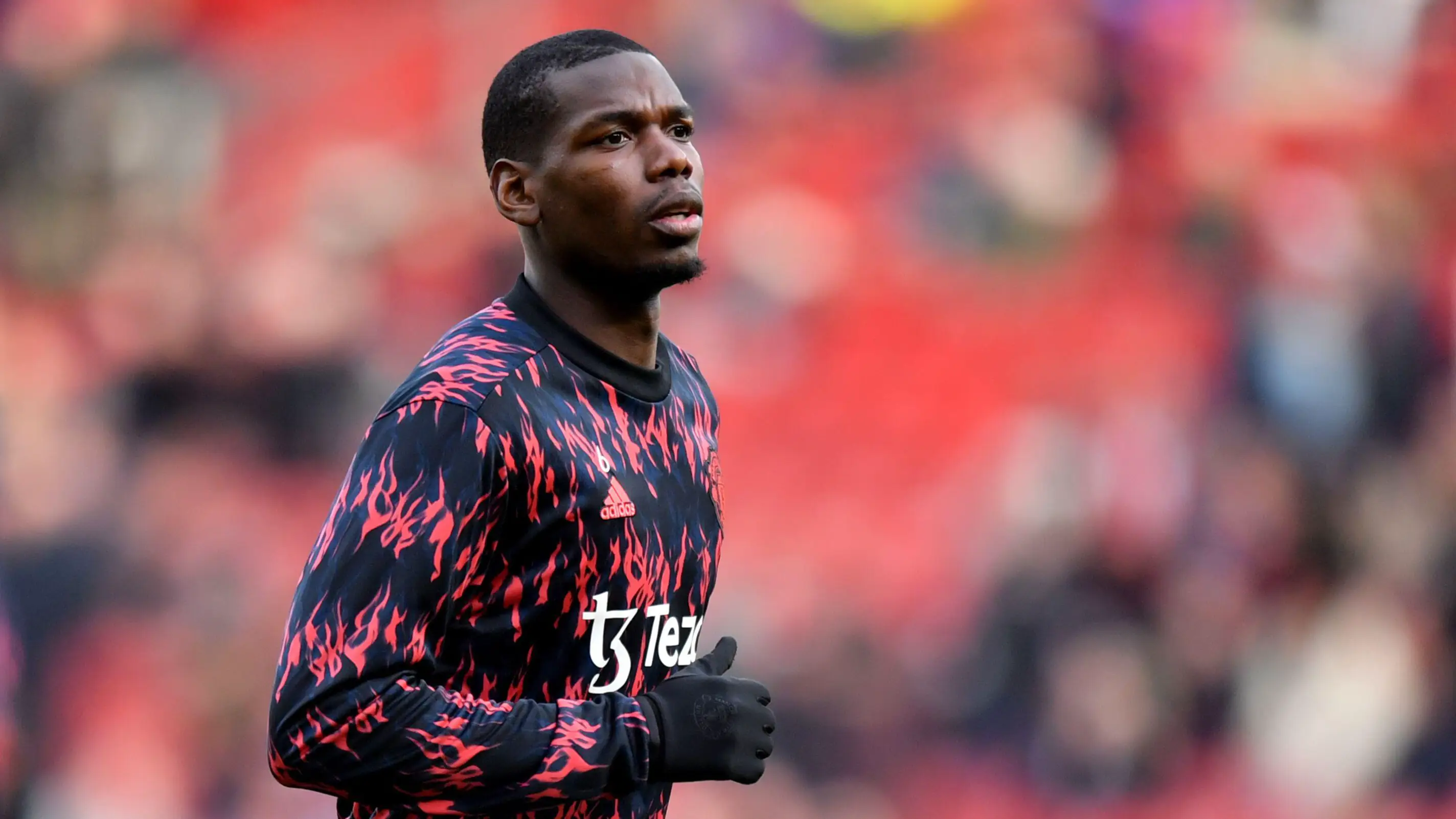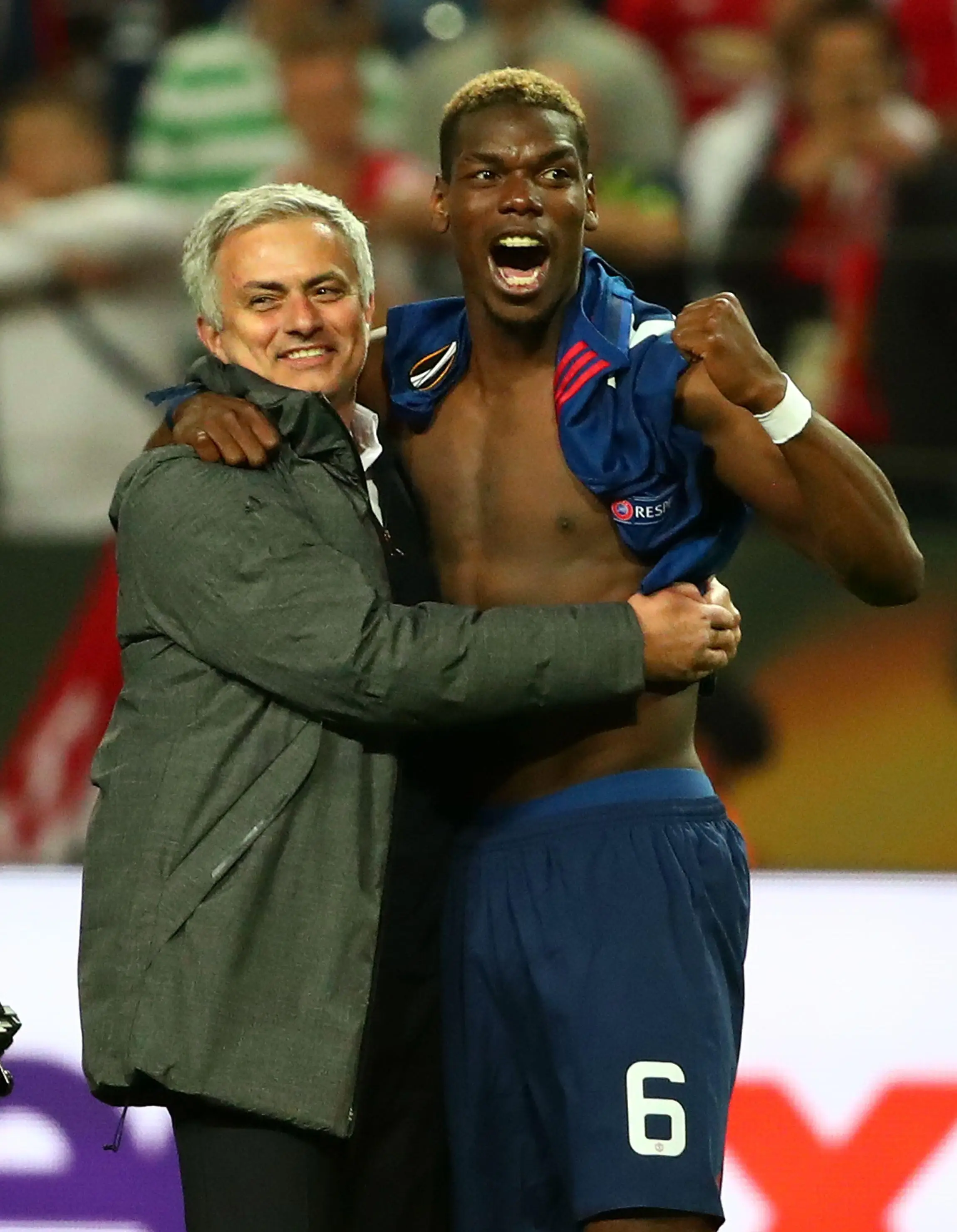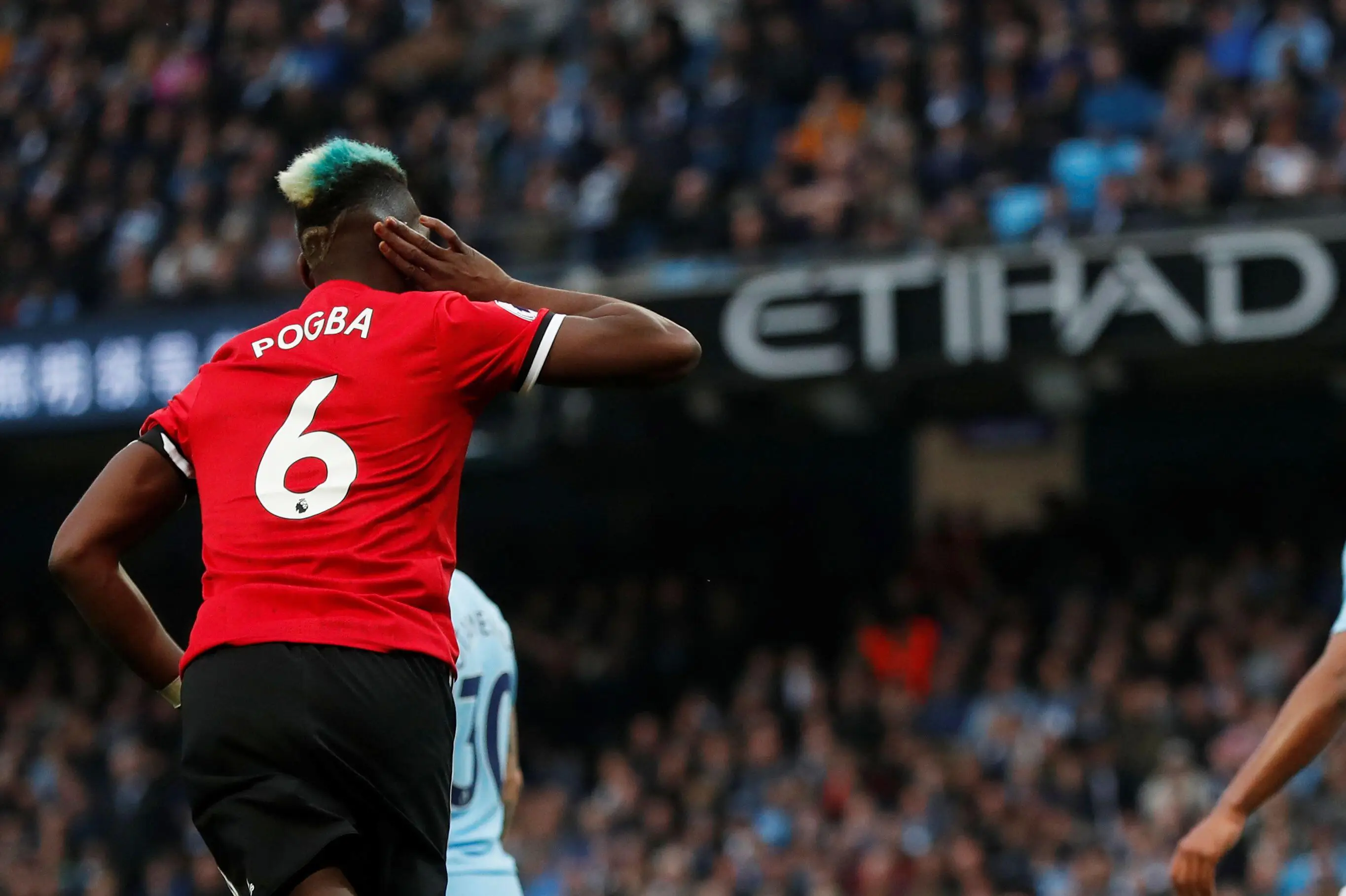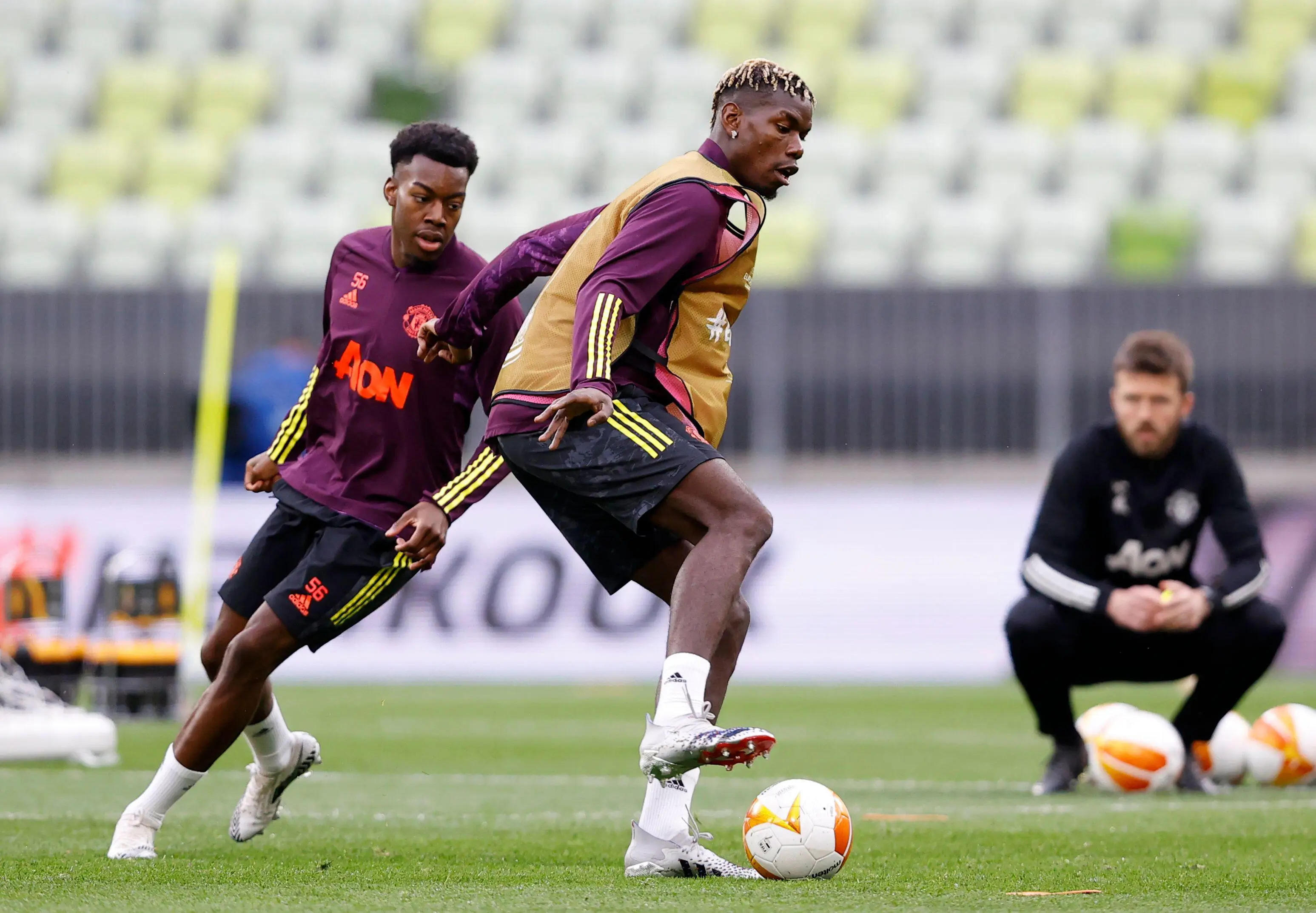
With the door now seemingly shut forever on the story of Paul Pogba and Manchester United, it would be all too easy to focus on the vast negatives.
An £89 million transfer fee and 89 games missed through injury, the story reads like an overly-expensive luxury player who was never the right fit for Manchester United at the time.
Whilst there could well be some truth in the idea that Paul Pogba’s return to the red side of Manchester tells a tale of disappointment, it’s perhaps unfair to exclusively remember the times where it all went wrong.
Having left the Theatre of Dreams as little more than a top youth prospect, Pogba returned a four-time Serie A winner with Juventus, a Champions League finalist, the 2013 Golden Boy winner, but most importantly, he returned as the jewel in the crown of Jose Mourinho’s Manchester United revival.
Advert

Despite signing Pogba off the back of a Juventus season where he was in the top three for goals and led the team in assists, positional issues emerged from the start of Pogba’s time at United. Often being utilised in defensive positions, three managers have come and gone and yet none seemed to allow him the freedom to frequently play as a part of the front four.
Paired off with Marouane Fellaini, Ander Herrera, Fred, and an ageing Michael Carrick just to name a few, each United manager’s determination to lay Pogba at the base of midfield has undeniably been at the detriment to both team and player.
Ole Gunnar Solskjaer seemed to be the first manager willing to place Pogba in the attacking third, but an inability to sign a defensive midfielder for his entire tenure would ultimately see Pogba moved back time and time again. This was despite Pogba himself admitting to BT Sport in 2021 that he would “prefer to be further [forward.]”
One only has to look at the highs of Pogba’s time in Manchester to see where mistakes were made. A twelve game stretch beginning the very first game Solskjaer took charge in late 2018 and ending in mid-February the next year saw him contribute 15 goal contributions.
In each of these games, Pogba was placed not at the base of a 4-2-3-1, but instead either as the attacking midfielder or as the left sided midfielder in a 4-3-3. It’s no coincidence that Pogba led the team in goals and assists that season, a season where he was regularly given the freedom to excel.
Despite all the positional woes and media speculation, there’s no denying that when Paul Pogba’s time at Manchester United was good, it was really good. That game under Mourinho against Manchester City when all looked lost stands out. Entering the break, two goals down, and without a shot in the first half. Yet it was Pogba, alongside fellow failed transfer Alexis Sanchez that rallied the troops and delivered a comeback worth remembering.
With two goals in a 3-2 comeback, it marked a theme of Pogba’s United career where he would steal the headlines in a ‘big game’ for better or worse.

The early injury departure when away against Liverpool this season, red cards in the 5-0 home drubbing against that same opposition, as well as PSG and Arsenal all marked some of the worst times. The latter of those three games, coming in a match where up to the point of the card, Pogba had been faultless, grabbing two assists.
But despite these horror shows, when Pogba was at his ‘big game’ best, he delivered. The aforementioned City comeback in 2018, as well as almost single handily knocking Chelsea out of the FA Cup back in 2019. Additionally, the Premier League openers against Chelsea and Leeds that saw him pick up six assists across the two games, again marked high points for the France international.
The undeniable highlight of Paul Pogba’s Manchester United career will remain his efforts in securing the club’s first-ever Europa League trophy. The opening goal in a 2-0 final win will remain the headline, but Pogba remained a stalwart of the squad. Starting all fifteen games in the competition, contributing on the attacking end with three goals. Pogba also chipped in to ensure United kept the best defensive record in the competition that season, as they headed on their way to lifting the trophy. A smile, a Dab and a final goal, it was prime 2017, and it was the very best of Paul Pogba at Manchester United.
In-between the Europa League final and the final day of the 2021/22 season Pogba’s time at United ebbed and flowed. For every injury struck season, there was one where he topped the United assist charts for that season, something he managed on three occasions. He delivered the goods more times than he perhaps gets credit for, constantly fighting off the weight off his then British transfer record fee.
This season was a mixed bag for Pogba. Starting with the high of highs that was that opening day trouncing of Leeds, his four assists on that day would be quickly followed by three more across his next three matches. Yet the turmoil inside the club seemed to rear its ugly head again, as well as Pogba once more being struck out for a long stretch with injury.
As aforementioned Solskjaer would find himself forced to move Pogba backwards, something Ralf Rangnick would also choose to adopt.
This choice would see Pogba play just 17 of his final 50 games with the club in the attacking third. As a result of this, upon Pogba’s return to the team from injury, it was a new manager but same old same old.
Pogba looked checked out, pushed back from the attacking position he excelled in once again, with Rangnick stating that he saw Pogba as an 8 or a 10. In the fourteen games Pogba would play under the German, he remained just short of taking up either of those roles. With just three goal contributions in those fourteen games, and less tackles in all three thirds of the pitch across the season than Anthony Elanga. The decision in hindsight by each manager to move Pogba backwards looks even more baffling.

The fact of the matter is at twenty-nine years old Paul Pogba still has a trophy haul that most players would dream of. With the final third of his career in sight, it’s undeniable the highs of his career so far have not come in a Manchester United shirt.
Winning as many trophies with France as he has with United in his six year stint with the club, Pogba’s time in Manchester will forever remain a tale of two sides.
From the player a lack of consistency, effort and an unwillingness to stay fit plagued his return. However questions will always loom over whether the club was ever the right fit, and if more could have been done to get the best out of their returning hero.
Maybe he should never have come back, or maybe he just came back at the wrong time. Would we look back on a player like Pogba’s Manchester United career differently if he was at his peak a decade earlier? Perhaps a career under Sir Alex Ferguson, where his infamous hairdryer treatment, or an arm around the shoulder as he so famously did with Eric Cantona, could have ironed out flaws and brought out a true Manchester United legend, we’ll never know.
The good times were few and far between, the injuries frequent with Pogba taking part in over 30 Premier League games a season on just two occasions, and truth be told United probably should have just cut their losses a few years back. Yet, there’s something sad about it ending this way. Looking back, a legacy has been left, but it can’t have been the one fans or Pogba himself would have wanted at the beginning of that summer in 2016.
Topics: Paul Pogba, Manchester United, Europa League, Premier League